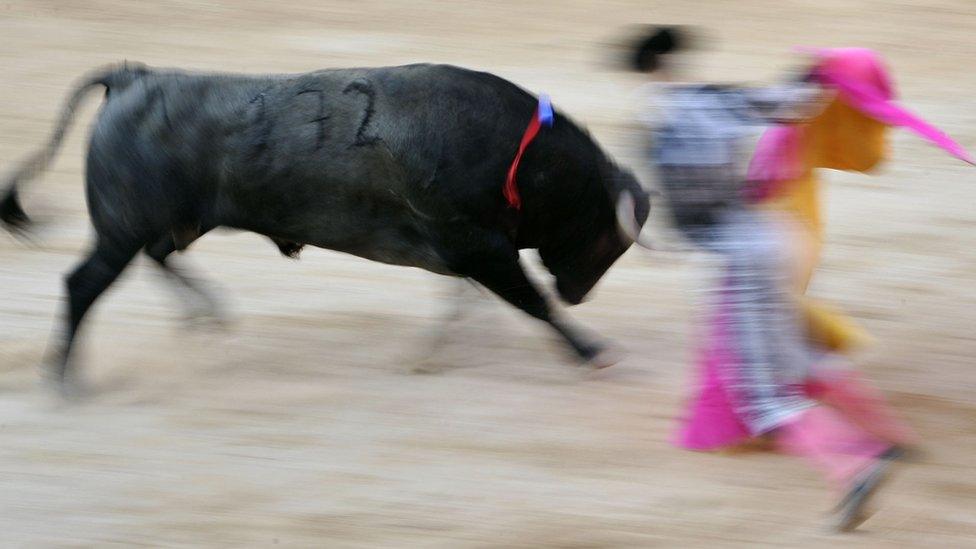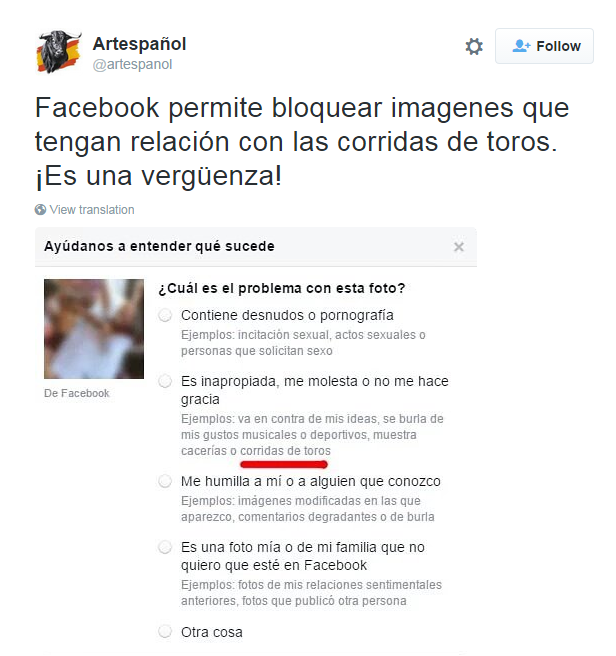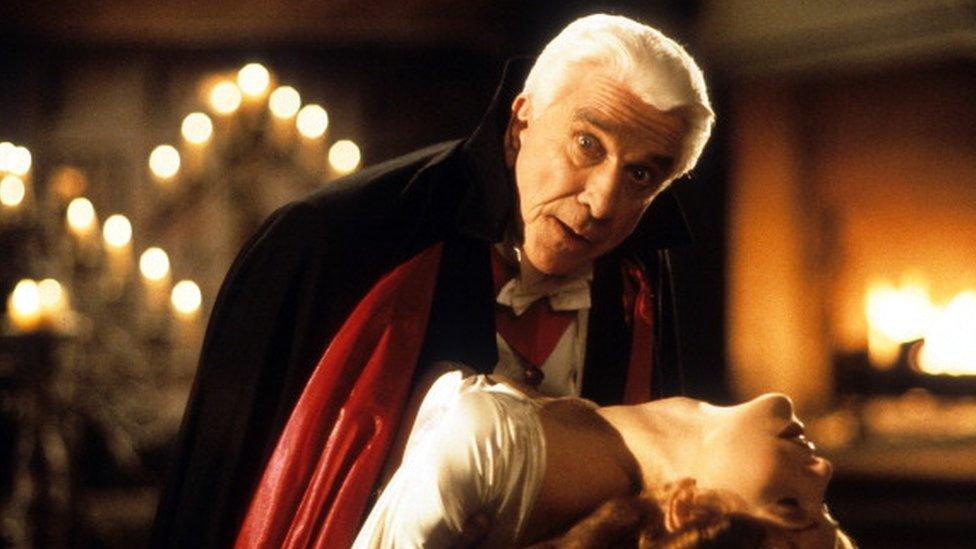Has bullfighting put Facebook on horns of a dilemma?
- Published

Pornography, prostitution, mocking or degrading someone are just some of the reasons you can give when reporting an image that has been posted on Facebook. But for a couple of days this week if you were in Spain you also had the option of asking for a photo to be reviewed and possibly removed if it contained...bullfighting.
Yes bullfighting, an activity that many people around the world - rightly or wrongly - think of as being intrinsic to Spanish cultural identity as cricket is to the English.
The new option appeared without fanfare last weekend. Suddenly users found they could flag up that they had a problem with a photo because: "It´s against my values, it mocks my musical or sport tastes, shows hunting scenes or bullfights."
The reaction on social media was swift.
Pacma, a political party dedicated to improving animal rights, tweeted its delight that: "Facebook has recognised the violent nature of bullfighting."
But the pro-bullfighting Twitter account @arteespanol regarded the move as an affront to national dignity. It posted a screengrab of the offending wording on Facebook's reporting menu and commented: "Facebook is allowing images of bullfighting to be blocked. It's an outrage! "

Pro-bullfighting campaigners tweeted a screengrab with the offending words underlined
Perhaps not surprisingly Fundacion del Toro de Lidia - an organisation that represents breeders who provide bulls for the arena - was equally horrified.
"This doesn't make any sense. It is unfair that they are comparing an art form with violent content", said a spokeswoman for the association.

Follow BBC Trending on Facebook
Join the conversation on this and other stories here, external.

However, not all reaction was quite as predictable. Not everyone against bullfighting wanted these images to be removed.
A Twitter account run by Spanish supporters of the Anonymous movement tweeted: "Facebook bans hunting and bullfighting pictures, but that's not good news".
This view was shared by Marta Esteban from the campaign group Tortura No Es Cultura (Torture isn't Culture) who want to see the regional bans of bullfighting in Catalonia and the Canary Islands extended to the whole country.
"We are using these images against bullfighting, so banning them is really a tricky solution", she said. "We have seen a clear shift from Spanish people: they are more and more are against these kind of practices and we think those images can help exposing the public to things they haven't seen before".
And while this debate was still raging Facebook suddenly and quietly stepped back. Sometime around Tuesday the option to report bullfighting photos was withdrawn without explanation.
When BBC Trending approached Facebook, a spokesman told us it had all been a mistake. Though he would not elaborate any further.
"Pictures of Bullfighting are allowed on Facebook," he said. "The inclusion of bullfighting in our image reporting flow was a mistake and has now been corrected."
The withdrawal has delighted Fundación del Toro de Lidia. "We think it is a matter of freedom of expression," their spokeswoman said.
But Marta Estaban from Torture isn't Culture says that Facebook has got it wrong.
"We think images that are promoting bullfighting should be banned, and others that are denouncing it should be permitted, there should be a distinction" she told Trending.
"We really don't care if this is going forward or not, banning images is working for us, and what this proves is that more and more people are actually against this kind of practices."
Blog by Alvaro A. Ricciardelli
Next story: Why is Leslie Nielsen STILL dead?

Leslie Nielsen - Dead (again) and loving it
What are the reasons why some celebrities keep dying online again and again and again? READ MORE
You can follow BBC Trending on Twitter @BBCtrending, external, and find us on Facebook, external. All our stories are at bbc.com/trending.